Filter by
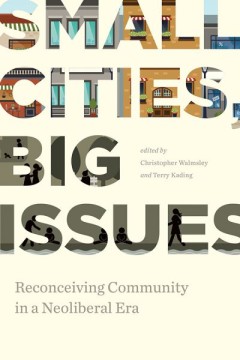
Small Cities, Big Issues Reconceiving Community in a Neoliberal Era
Small Canadian cities confront serious social issues as a result of the neoliberal economic restructuring practiced by both federal and provincial governments since the 1980s. Drastic spending reductions and ongoing restraint in social assistance, income supports, and the provision of affordable housing, combined with the offloading of social responsibilities onto municipalities, has contribute…
- Edition
- -
- ISBN/ISSN
- 9781771991636.01
- Collation
- -
- Series Title
- -
- Call Number
- 6 x 9, 334 pages
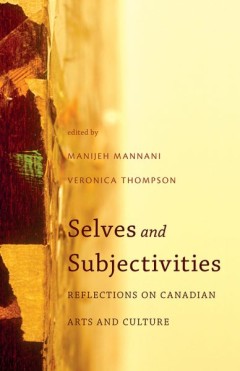
Selves and Subjectivities Reflections on Canadian Arts and Culture
As critic Diana Brydon has argued, contemporary Canadian writers are “not transcending nation but resituating it.” Drawing together themes of gender and sexuality, trauma and displacement, performativity, and linguistic diversity, Selves and Subjectivities offers an exciting new contribution to the multivocal dialogue surrounding the Canadian sense of identity.
- Edition
- -
- ISBN/ISSN
- 9781926836492.01
- Collation
- -
- Series Title
- -
- Call Number
- 275 pages
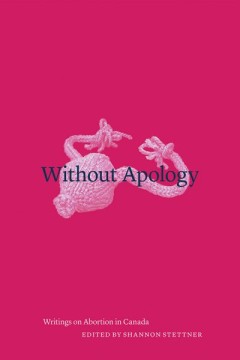
Without Apology Writings on Abortion in Canada
With contributions by Aalya Ahmad, Tracey L. Anderson, Jane Cawthorne, Peggy Cooke, Shannon Dea, Carolyn Egan, Linda Gardner, Laura Gillespie, Sterling Haynes, E.K. Hornbeck, Clarissa Hurley, “Dr. James”, H. Bindy K. Kang, Kristen, Natalie Lochwin, Mackenzie, Colleen MacQuarrie, Ruth Miller, Judith Mintz, Erin Mullan, Jen Rinaldi, Sadie Roberts, Martha Solomon, Shannon Stettner, Karen Stote…
- Edition
- -
- ISBN/ISSN
- 9781771991599.01
- Collation
- -
- Series Title
- -
- Call Number
- 366 pages
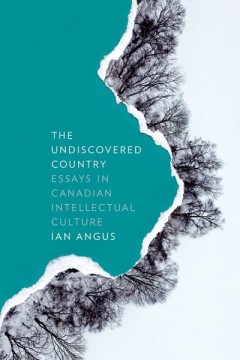
The Undiscovered Country Essays in Canadian Intellectual Culture
In this sequence of essays, Ian Angus engages with themes of identity, power, and the nation as they emerge in contemporary English Canadian philosophical thought, seeking to prepare the groundwork for a critical theory of neoliberal globalization. The essays are organized into three parts. The opening part offers a nuanced critique of the Hegelian confidence and progressivism that has come to …
- Edition
- -
- ISBN/ISSN
- 9781927356326.01
- Collation
- -
- Series Title
- Cultural Dialectics
- Call Number
- 306 pages
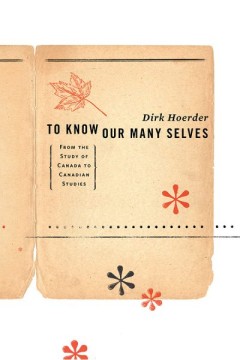
To Know Our Many Selves From the Study of Canada to Canadian Studies
To Know Our Many Selves profiles the history of Canadian Studies, which began as early as the 1840s with the Study of Canada. Professor Dirk Hoerder discusses this comprehensive examination of culture by highlighting its unique interdisciplinary approach, which included both sociological and political angles. Years later, as the study of other ethnicities was added to the cultural story of Cana…
- Edition
- -
- ISBN/ISSN
- 9781897425725.01
- Collation
- -
- Series Title
- -
- Call Number
- 450 pages

Selves and Subjectivities Reflections on Canadian Arts and Culture
As critic Diana Brydon has argued, contemporary Canadian writers are “not transcending nation but resituating it.” Drawing together themes of gender and sexuality, trauma and displacement, performativity, and linguistic diversity, Selves and Subjectivities offers an exciting new contribution to the multivocal dialogue surrounding the Canadian sense of identity.
- Edition
- -
- ISBN/ISSN
- 9781926836492.01
- Collation
- -
- Series Title
- -
- Call Number
- 275 pages
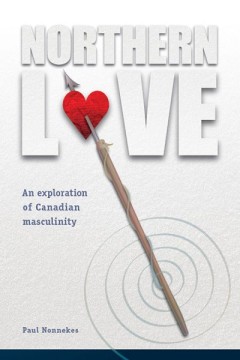
Northern Love An Exploration of Canadian Masculinity
In Northern Love, Paul Nonnekes proposes a conception of love suggestive of a distinctive model of Canadian masclinity. He pursues debates in psychoanalysis and cultural theory in relation to two representative male characters in novels by Rudy Wiebe (A Discovery of Strangers) and Robert Kroetsch (The Man from the Creek).
- Edition
- -
- ISBN/ISSN
- 9781897425220.01
- Collation
- -
- Series Title
- Cultural Dialectics
- Call Number
- 145 pages
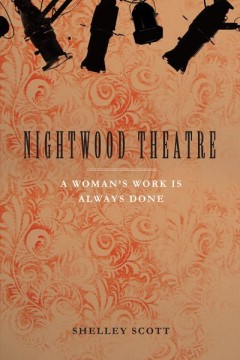
Nightwood Theatre A Woman’s Work Is Always Done
In Nightwood Theatre, Scott describes the company’s journey toward defining itself as a feminist theatre establishment, highlighting its artistic leadership based on its relevance to diverse communities of women. She also traces Nightwood’s relationship with the media and places the theatre in an international context by comparing its history to that of like companies in the U.K. and the U.S
- Edition
- -
- ISBN/ISSN
- 9781897425558.01
- Collation
- -
- Series Title
- Canadian Plays
- Call Number
- 344 pages
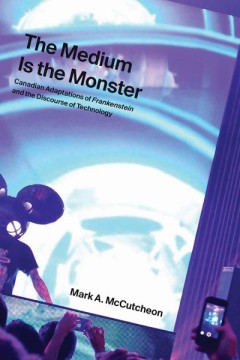
The Medium Is the Monster Canadian Adaptations of Frankenstein and the Disco…
Technology, a word that emerged historically first to denote the study of any art or technique, has come, in modernity, to describe advanced machines, industrial systems, and media. McCutcheon argues that it is Mary Shelley’s 1818 novel Frankenstein that effectively reinvented the meaning of the word for modern English. It was then Marshall McLuhan’s media theory and its adaptations in Cana…
- Edition
- -
- ISBN/ISSN
- 9781771992244.01
- Collation
- -
- Series Title
- -
- Call Number
- 6 x 9, 248 pages
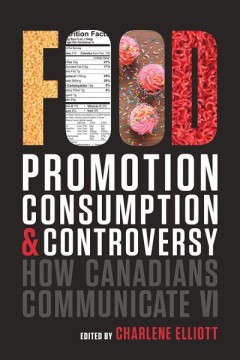
How Canadians Communicate VI Food Promotion, Consumption, and Controversy
By examining topics such as the values embedded in food marketing, the locavore movement, food tourism, dinner parties, food bank donations, the moral panic surrounding obesity, food crises, and fears about food safety, the contributors to this volume paint a rich, and sometimes unsettling portrait of how food is represented, regulated, and consumed in Canada. With chapters from leading scholar…
- Edition
- -
- ISBN/ISSN
- 9781771990257.01
- Collation
- -
- Series Title
- -
- Call Number
- 336 pages
 Computer Science, Information & General Works
Computer Science, Information & General Works  Philosophy & Psychology
Philosophy & Psychology  Religion
Religion  Social Sciences
Social Sciences  Language
Language  Pure Science
Pure Science  Applied Sciences
Applied Sciences  Art & Recreation
Art & Recreation  Literature
Literature  History & Geography
History & Geography